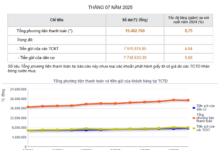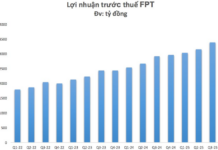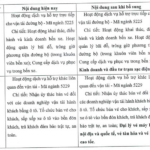Proposal to Use Land Price Tables and Adjustment Factors for Land Valuation
At a recent meeting on amending the Land Law, the Ministry of Agriculture and Environment (MAE) proposed eliminating the commune-level land-use planning and retaining only the commune-level land-use plan based on allocation indicators from the provincial level (Option 2). According to the MAE, this approach aims to streamline procedures, avoid overlaps, and enhance unity from the top down.
Regarding financial mechanisms and land prices, the Ministry proposed using land price tables and adjustment factors as a basis for financial obligations and compensation when the state retrieves land. They also suggested including infrastructure costs in the price determination method.

The MEA proposes using land price tables and adjustment factors as a basis for financial obligations and compensation when the state retrieves land. Photo: Phan Thiên.
|
Concerning land retrieval regulations, the draft law adds three cases where the state can retrieve land for socio-economic development in the national and public interest. These include critical and urgent projects, stalled projects due to disagreements with residents, and allowing land retrieval before approving compensation plans if more than 75% of residents agree to expedite the project while ensuring the remaining households’ rights.
The amended Land Law is expected to clearly define the responsibility for completing the national land information system by 2026. This system will serve as an essential foundation for integrating and connecting land data with demographic, financial, and real estate market databases, contributing to transparency and modernization in land management…
The MEA affirmed that this amendment does not aim for a comprehensive overhaul of the Land Law but focuses on immediately addressing legal bottlenecks and improving existing shortcomings.
According to the MEA’s proposal, the amended Law on Land, which supplements several articles of the Land Law, is expected to take effect on January 1, 2026.
Land Price Tables Will Be Used for All Policies
At the meeting, Mr. Nguyen Ngoc Phuc, Vice Chairman of the Lam Dong Provincial People’s Committee, suggested that applying a stable land price table for five years and adjustment factors must be based on practical data reflecting land price fluctuations in each area to reduce calculation pressure and ensure project efficiency.
The land price variation factor should be determined based on market data rather than a mechanical application. Simultaneously, consider the option of paying land money once for the entire project life cycle to facilitate businesses and management agencies.
Meanwhile, Le Hoang Chau, Chairman of the Ho Chi Minh City Real Estate Association, proposed that the annual land price tables and adjustment factors should distinguish between land within and beyond the limit to reduce costs for households. He also suggested allowing investors to adjust the land use duration when repurchasing projects with a short remaining period and providing a mechanism for dealing with state-owned enterprise land after equitization…
Concluding the meeting, Deputy Prime Minister Tran Hong Ha emphasized that land-use planning is currently carried out at the provincial and central levels. Where there is no planning, it is mandatory to establish land-use planning for management.
The Deputy Prime Minister highlighted that land price tables would be used for all policies, balancing the interests of citizens, businesses, and the state. However, detailed regulations are needed for adjustment factors, based on practical data and market principles, to avoid confusion or legal violations and potential risks for management agencies.
同时,副总理要求考虑取消因国家原因导致的延迟缴纳土地使用费的补充规定。 法律的实施时间必须遵守“决定何时应用”原则…
Phan Thiên
– 06:08 02/09/2025
Proposed Amendment: Recognizing “Households” as Land Users
The Ho Chi Minh City Real Estate Association has proposed a new regulation to be included in the 2024 Land Law. The proposal suggests recognizing “households” as land users, a move that could potentially revolutionize land ownership in the city.
The Five Amendments Legacy: Revolutionizing Vietnam’s Provincial Landscape
After 80 years of nation-building, Vietnam’s land management has undergone several pivotal transitions, evolving from feudal ownership to state ownership and eventually embracing market mechanisms. Each reform has been intrinsically linked to significant shifts in the nation’s trajectory. Experts view the current wave of institutional reforms, including provincial mergers, streamlining of bureaucratic apparatuses, and the establishment of a national database, as tantamount to a “fourth revolution” in land management.













































